World Famous Grapes
Verdejo
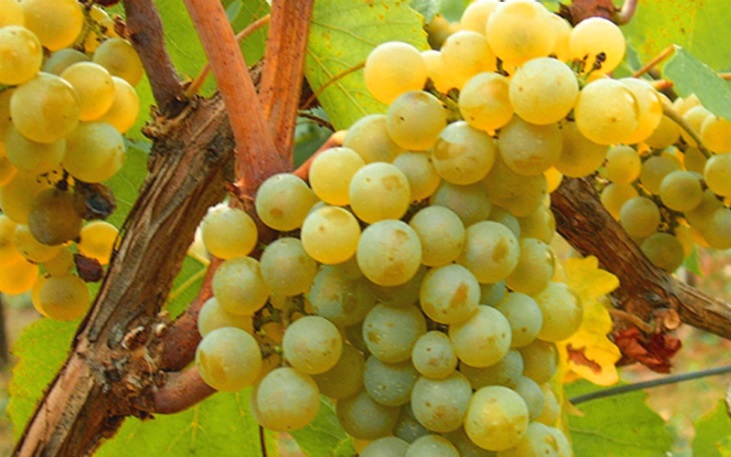
Verdejo is a grape from the Rueda region of Spain.
It originated in Africa, and was spread to Spain by Arabs.
Verdejo Flavors
Verdejo has a Citrussy and Fruity touch. Nutty. Herbaceous. Excellent level of Acidity.
Lime |
Grapefruit |
Peach |
Melon |
Almonds |
Hazelnuts |
Herbs |
Minerals |
About Verdejo
Verdejo was generally used to make a strongly oxidized Sherry-like wine.
In the 1970s, Marqués de Riscal with the help of French oenologist Émile Peynaud, began to develop a fresh white wine. In 1980, white wines from the Rueda region were recognized by a DO (Denominación de Origen).
Verdejo's popularity grow in the nineties as a substitute for the popular Sauvignon Blanc. Today, 40% of all white wine sold in Spain is made from Verdejo.
Verdejo is mainly grown in Castilla y León and particularly in Rueda, south of Valladolid in northwest Spain. Here it makes up nearly 90% of the harvest, so it really is the dominant grape variety.
Wines labeled Rueda must contain 50% Verdejo blended with Sauvignon blanc or Macabeo. Wines labeled "Rueda Verdejo" often contains 100% Verdejo.
Verdejo grapes are harvested at night where the grapes enter the wine cellar at night-time temperature of 10–15 °C (50–59 °F) instead of the daytime temperature, which can be as high as 28–30 °C (82–86 °F) in September.
DO Rueda (1980)
Vineyard area: 12 500 hectares.
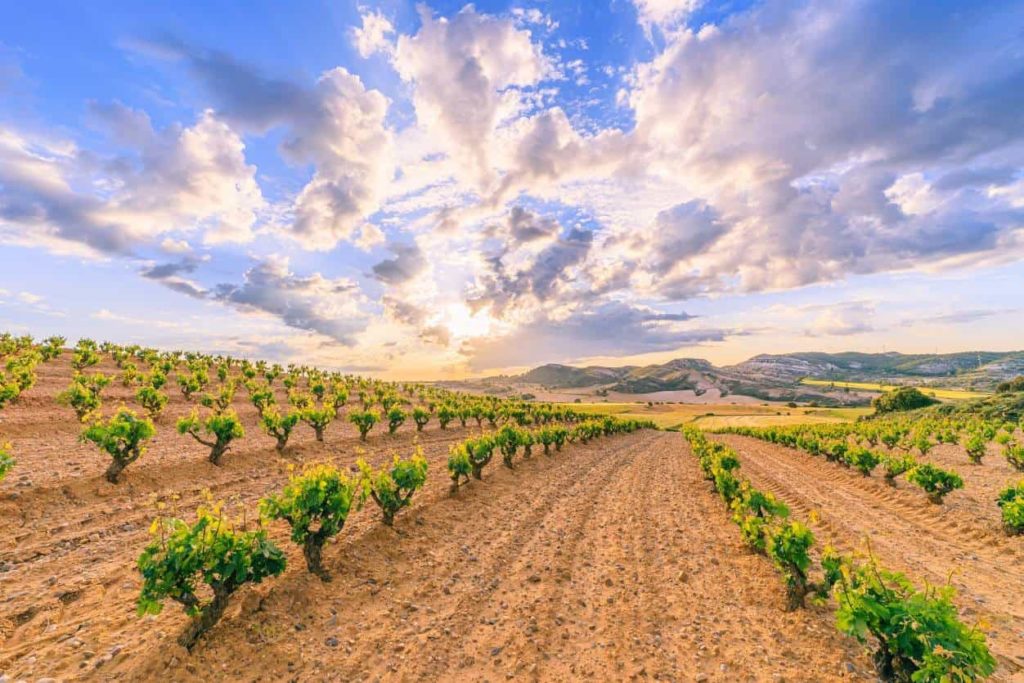
Rueda DO is located in the dry Castilla y Leon region.
The vines have to work hard to grow in Rueda, and you can taste it in the wines.
Irrigation is needed from the Duero River that flows through the area.
Wines labeled Rueda DO must contain 50% Verdejo blended with Sauvignon blanc or Macabeo.
Wines labeled "Rueda Verdejo" often contains 100% Verdejo.
The Rueda DO is centered around the town of Rueda, in the province of Valladolid. The land is a flat high plain at 600 to 800 metres (2,000 - 2600 ft) above sea level. This means there is a considerable difference between day and night temperatures.
Rueda DO Production 2020
| White | Black | Total |
|---|---|---|
| 110 500 000 kg | 1 210 000 kg | 111 710 000 kg |
Rueda DO Production History
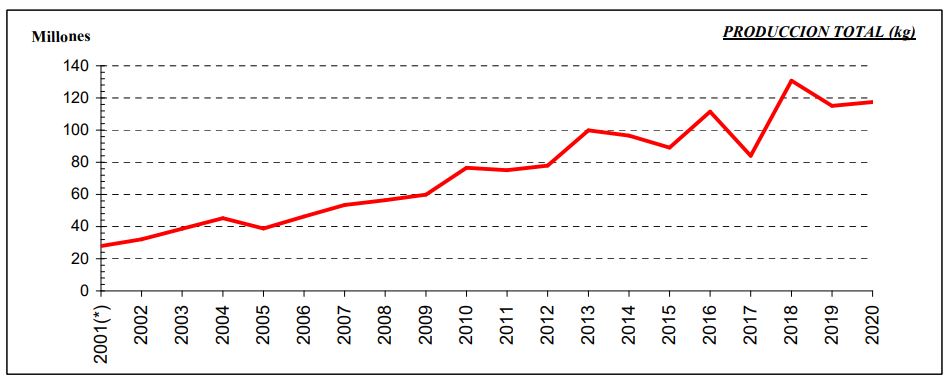
Black Grapes | White Grapes |
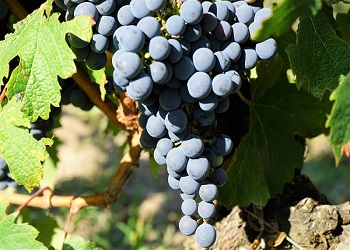
1% Tempranillo |
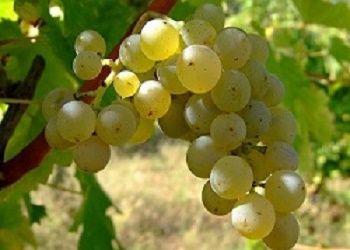
83% Verdejo |
Soil
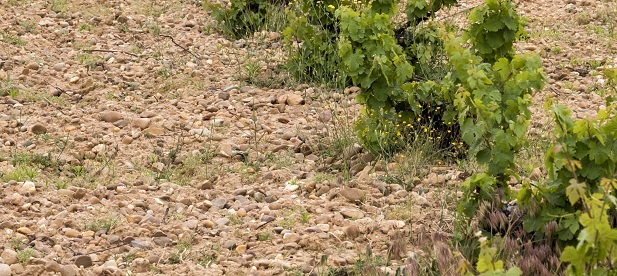
Gravelly.
Good Ventilation and Drainage.
Climate

Hot and Dry Continental.
Abdundant Sunshine.
Low Rainfall.
High Altitudes:
600-800 m (2000-2600 ft)
High Diurnal Temperature Range.
Annual Temperatures:
–5° to 25°C
Alcohol can be addictive. Always drink in moderation.
© Copyright 2015-2025 W3 Wine School. All Rights Reserved.